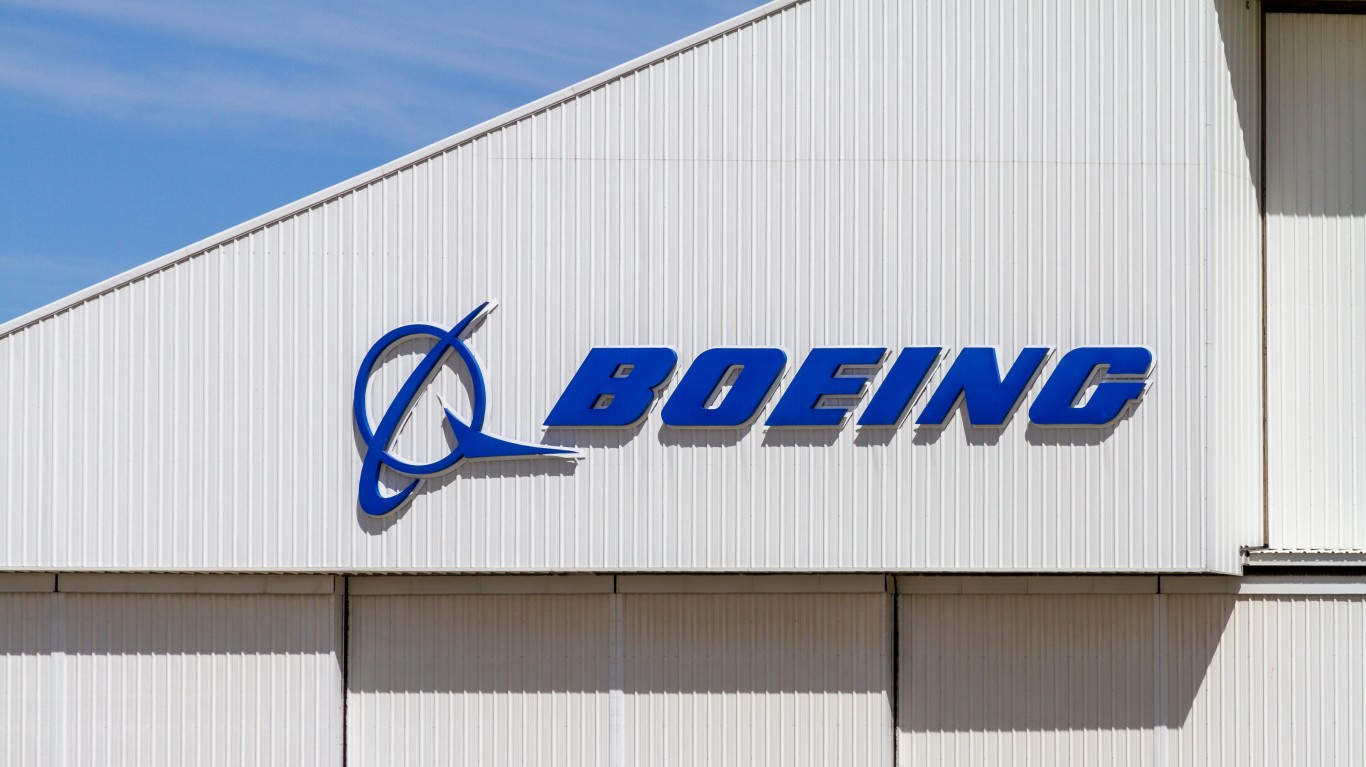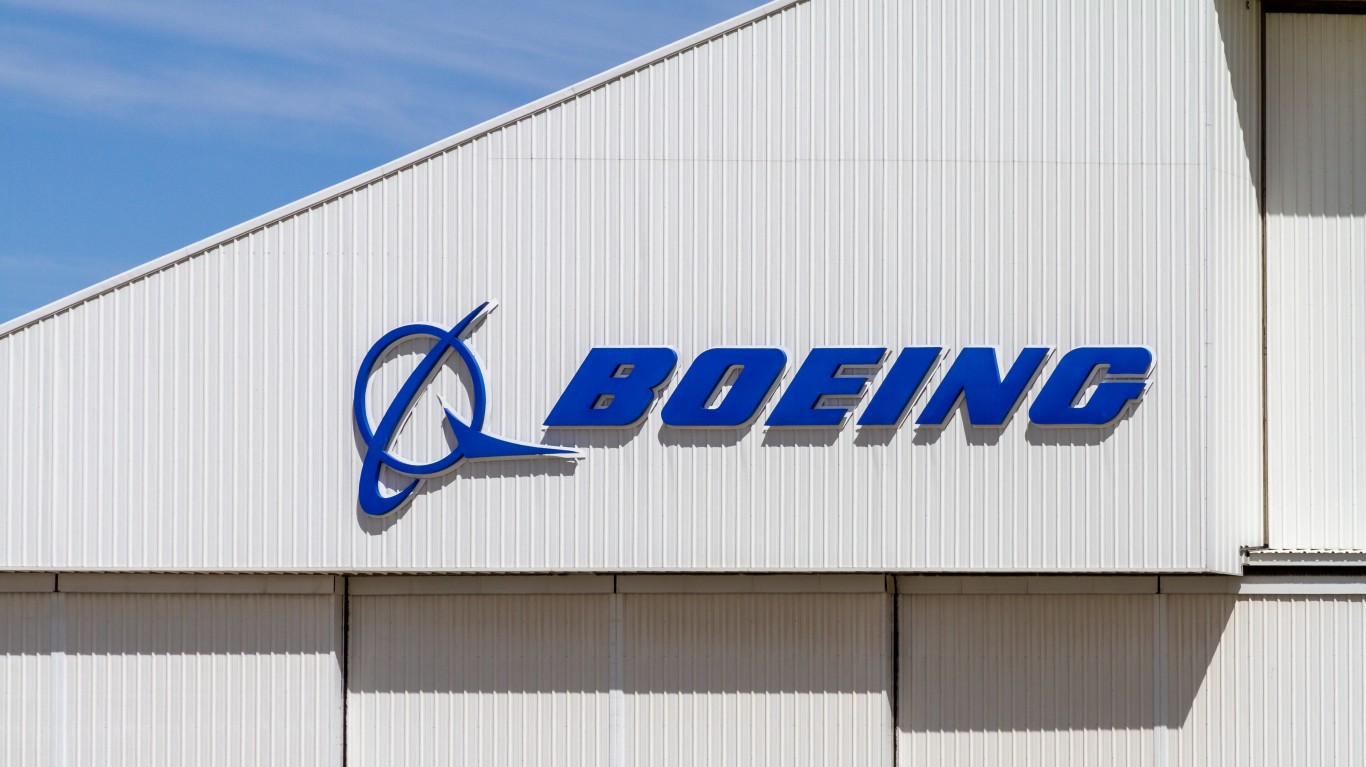
While the airline industry waits for light at the end of the coronavirus tunnel, Boeing Co. (NYSE: BA) may be getting some tiny slivers of positive news. These stories are tied to an unlikely source: Boeing’s troubled 737 Max commercial jet, grounded since March 2019 after two deadly crashes.
Contributing to the Dow Jones rally Thursday, Boeing stock leaped to $128.65, up 5.57%.
737 Max Production
Boeing is still waiting on regulatory approval to return the 737 Max to service. Reuters recently reported that probably won’t happen before August, as engineers continue work on the airplane’s software issues. Scheduled test flights have been postponed, due in part to the coronavirus.
But Boeing plans to resume production long before the Federal Aviation Administration (FAA) greenlights flights. Its biggest 737 Max supplier is restarting work now. Spirit AeroSystems Holdings Inc. (NYSE: SPR) reached an agreement with Boeing this week to ship 125 Max fuselages this year.
“They’re making sure it’s a safe return to service,” said Spirit CEO Thomas C. Gentile III in a call with analysts. “But production is decoupled [from regulatory approval]. They’re starting right now.”
The 125 frames Spirit will ship from Kansas to the Seattle area represent a drop from the over 200+ frames Boeing had originally ordered for 2020. But at least factories will start working again. And Spirit expects more orders in 2021.
If airlines start accepting these new planes, it improves Boeing’s cash flow. For example, United Airlines Inc. (NASDAQ: UAL) expects to take delivery of 16 Max aircraft in 2020. Restarting the supply chain also shows that Boeing has strong confidence in the 737 Max’s return to the skies sooner rather than later.
Small Victory Over Airbus?
In its earnings call this week, Alaska Air Group Inc. (NYSE: ALK) hinted it may be favoring Boeing over long-time rival Airbus Group, based in the Netherlands. During the coronavirus slowdown, Alaska Airlines has permanently retired 12 Airbus planes and started retraining 240 Airbus pilots to fly the 737.
Alaska wouldn’t explicitly say it plans to ditch Airbus permanently, but what it did say seems promising for Boeing. “A dual fleet does have higher cost for us,” said President Ben Minicucci. “So that is a factor we’re going to consider. The Airbus 321 is a great airplane, we like it a lot, but we’re going to bring all these factors together … So a lot of things in play and as the months play out, we’ll get more clearer on what our direction is.”
Aviation analysts point out the 737 generally has lower operating costs than other models, which should be attractive to all airlines as they ramp up business coming out of the COVID-19 pandemic. The 737 Max is also a narrow-body plane, which is ideal for domestic routes. Some travel experts expect domestic airline customers to return long before international flights, which require bigger wide-body craft.
Stock Outlook
Even though Boeing stock is down almost 61% year to date, most analysts still give it a “hold,” with a few daring to say “buy Boeing.” That’s pretty remarkable in such a negative environment for the aerospace industry.
Consider that U.S. airlines are burning through $10 billion a month, according to Airlines for America, an industry trade group. Even after grounding half of their fleets, the four largest U.S. carriers are averaging just 17 passengers per domestic flight and 29 per international flight, according to figures reported to Congress this week. None of these carriers are likely to go on spending sprees any time soon.
The Chicago-based company raised $25 billion in a massive bond offering last week, as it decided to skip aid from Washington. Federal dollars usually come with strings attached and public companies have faced intense scrutiny after accepting bailout funds. So this could be a political plus for Boeing.
Raising cash and reducing costs has also pleased some Wall Street analysts. The company is cutting about 16,000 employees (10% of its workforce), including many in the commercial airline sector.
Meanwhile, the defense category should remain steady. “This year, of course, the defense business will probably be bigger than the commercial business,” said CEO David Calhoun.
In its first-quarter earnings report, Boeing said last week that revenues in the defense division were $6 billion, down from $6.6 billion in Q1 2019. The commercial aircraft division saw its revenues sink to $6.2 billion in Q1 2020 from $11.8 billion a year ago.
Boeing lost $1.35 billion in the first quarter, an adjusted diluted per-share loss of $1.70 on revenues of $16.91 billion for the first quarter. The company also eliminated its dividend payouts for now as it seeks to minimize its cash burn.
Take This Retirement Quiz To Get Matched With An Advisor Now (Sponsored)
Are you ready for retirement? Planning for retirement can be overwhelming, that’s why it could be a good idea to speak to a fiduciary financial advisor about your goals today.
Start by taking this retirement quiz right here from SmartAsset that will match you with up to 3 financial advisors that serve your area and beyond in 5 minutes. Smart Asset is now matching over 50,000 people a month.
Click here now to get started.
Thank you for reading! Have some feedback for us?
Contact the 24/7 Wall St. editorial team.
 24/7 Wall St.
24/7 Wall St.